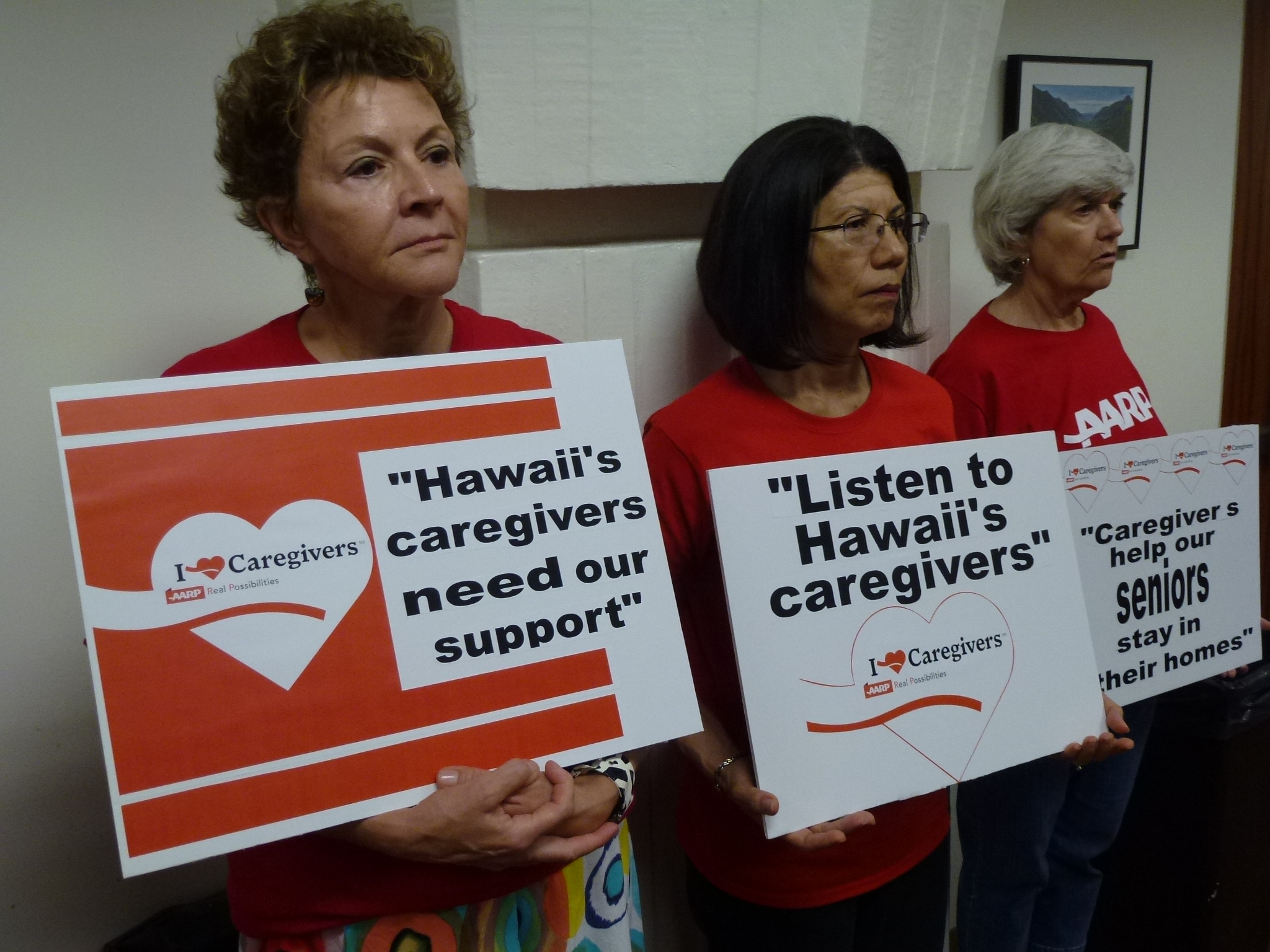AARP Eye Center

Hawaii’s population is aging, and family caregivers are under growing pressure to help their loved ones live independently at home. In 2015 a number of elder advocacy groups joined AARP Hawaii is urging legislators to pass Senate Bill 296, which would help caregivers perform after-care tasks such as medication management and wound care when a patient comes home from the hospital.
But at a joint hearing of the Senate Health and Senate Human Services and Housing Committees on February 6, Health Committee Chair Josh Green moved to indefinitely defer SB 296 - ignoring public testimony numbering 3-to-1 in support of the measure. Advocates issued a statement expressing disappointment at Green's decision to abruptly end the public conversation.
“The CARE Act is needed as the pressure grows on unpaid family caregivers to provide care that’s increasingly complex,” said AARP Hawaii State Director Barbara Kim Stanton. “Caregivers have traditionally helped family members with bathing, dressing, eating and other activities of daily living. Today’s caregivers are also called upon to do such things as manage multiple medications and operate specialized medical equipment. These are the kinds of medical tasks for which many family caregivers have little or no training.”
The CARE Act is intended to help families by involving family caregivers more intentionally in the hospital discharge process. The core elements of the bill expected to be introduced this session include: 1) giving patients the opportunity to designate a family caregiver’s name on the medical record; 2) notifying the caregiver when the patient is to be discharged; 3) requiring hospitals to provide live instruction to the family caregiver of the specific medical tasks that need to be performed at home. The bill would not require an appropriation of state funds.
AARP Hawaii is one of many community groups and agencies that submitted testimony in support of the CARE Act. Others included the Hawaii Family Caregiver Coalition, Kauai County Agency of Elderly Affairs, Kokua Council, Project Dana, ILWU 142, the Hawaii Government Employees Association, and the Maui County Office on Aging.
These organizations believe that providing care instructions at the time of discharge – while helping caregivers navigate a potentially confusing array of medical tasks – could also cut down on costly and excessive hospital readmissions. Last year the Hawaii Health Information Corporation noted that there were about 5,500 30-day potentially preventable readmissions in Hawaii, with associated charges of nearly $239 million in 2013 alone.
The bill also has the support of Hawaii residents. In a recent AARP Hawaii survey of registered voter age 45+ about 95 percent of respondents said they support requiring hospitals to explain and demonstrate medical and nursing tasks that caregivers need to perform after loved ones return from the hospital, with 79 percent strongly supporting the proposal.
How important are family caregivers to Hawaii health care support system? AARP’s Public Policy Institute estimates that there are 247,000 family caregivers throughout the year in Hawaii, who provided unpaid care valued at nearly $2 billion in 2009 alone.
Unpaid family caregivers are the backbone of Hawaii’s eldercare system – and they need our support. To get involved in supporting family caregivers, call AARP Hawaii Director of Advocacy Josh Wisch at 808-545-6005.























































